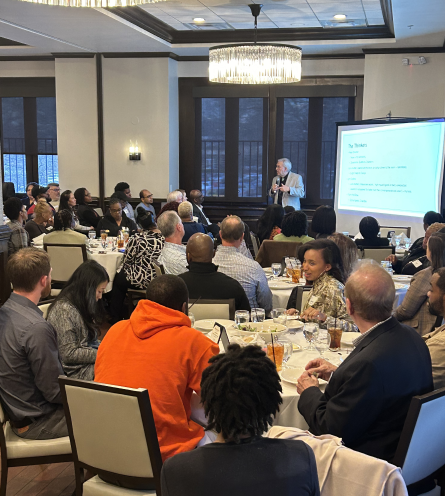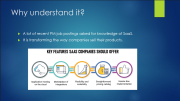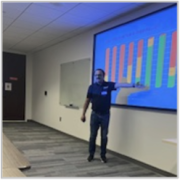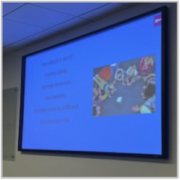By Karen Jacobs, PMP
 PMI Atlanta’s first in-person Chapter meeting at Maggiano's, held on March 11, served up a warm welcome for newcomers and a keynote address full of lessons from great leaders past and present.
PMI Atlanta’s first in-person Chapter meeting at Maggiano's, held on March 11, served up a warm welcome for newcomers and a keynote address full of lessons from great leaders past and present.
Our members and guests enjoyed a delightful meal with rigatoni, baked cod, and eggplant parmesan served family style at Maggiano’s Little Italy at Perimeter Mall—the Chapter’s new venue for in-person Chapter Meetings. Dessert was strawberry cheesecake and a rich chocolate layer cake.
Dick Teters, founder and executive director of The Center for Accountable Leaders and a professor at Kennesaw State University’s Coles College of Business, delivered the keynote address focused on Simon Sinek’s Golden Circle concept of inspiring action and its applicability in project management.
He highlighted the importance of knowing “the why” behind ambitious goals, pointing out the examples of notable figures such as former President John F. Kennedy, who led the charge for the US space program to land a man on the moon, and entrepreneur Elon Musk’s current goal to build a Starship rocket that could transform space travel. He discussed the differing approaches of explorers Roald Amundsen and Robert Falcon Scott to their 1911 expeditions to the South Pole, with Amundsen’s team using better navigation and traveling every day regardless of weather in the freezing Antarctic, while Scott’s team operated only in good weather. The efforts of Amundsen’s team ended in triumph with his team being the first to reach the Earth’s southernmost point, while Scott’s team died on the return journey home. Teters’ point was that planning and preparation can make a difference.
The meeting included announcements of available volunteer positions, including in-person and virtual meeting facilitators for the operations team; facilitators for newcomer sessions for the engagement team; and social media and content managers for the marketing team.
Our next in-person Chapter Meeting will be held Monday, May 20, 2024 at Maggiano's Little Italy. Be sure to register today!











